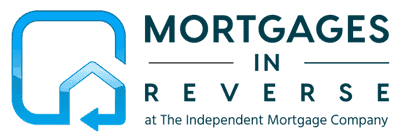Navigating the world of reverse mortgages can be like trying to steer a ship through foggy waters; it's tricky, filled with potential pitfalls and not for the faint of heart.
You're a Vancouver resident, perhaps you're considering tapping into your home equity to bolster your retirement funds. But, are you aware of the eligibility criteria, the potential benefits and the risks involved?
Do you know how to choose a reputable lender?
All of these questions and more will be addressed, so brace yourself for a voyage of financial discovery.
Key Takeaways
- Reverse mortgages provide a steady income for Vancouver residents aged 55 and above, utilizing their home equity.
- These mortgages come with potential tax advantages but can risk depleting your home equity and have high fees.
- Eligibility for reverse mortgages involves factors such as age, homeownership, property type, financial standing, and credit history.
- Choosing a reputable lender involves considering their license status, interest rates, transparency in costs, and quality of customer service.
Understanding Reverse Mortgages
To fully grasp the concept of reverse mortgages, you'll need to delve into the intricate mechanics of this financial strategy, comprehending its potential benefits and drawbacks for homeowners in Vancouver.
One of the most common reverse mortgage misconceptions is that the bank owns your home. In reality, you retain homeownership, allowing you to benefit from any possible future appreciation in the property's value.
However, it's important to be aware of the tax implications. Unlike traditional mortgages, the money you receive from a reverse mortgage isn't taxable. This is because it's considered a loan advance, not income. Yet, it can affect your eligibility for certain government benefits, so it's crucial to consult with a financial advisor.
Another misconception involves the belief that reverse mortgages are an expensive option. While there are costs involved, they're comparable to those of other mortgage products. Furthermore, the proceeds from a reverse mortgage can help cover these costs, making it a potentially beneficial strategy for those looking to supplement their retirement income.
Understanding these aspects will enable you to navigate the complexities of reverse mortgages in Vancouver more effectively.
Eligibility Criteria for Reverse Mortgages
Before you can dive into the world of reverse mortgages in Vancouver, you'll need to meet specific eligibility criteria, setting the foundation for this financial strategy. Understanding these requirements is crucial to navigate through the application process efficiently and effectively.
- Age and Ownership: You must be at least 55 years old and own your home (or a considerable amount of equity in it). This is your primary residence where you live for at least six months of the year.
- Property Type and Condition: Your home must be a single-family dwelling, a multi-unit property with up to four units, or a manufactured home that meets specific standards. Also, your property should be in good condition and meet the lender's requirements.
- Financial Assessment: Lenders will evaluate your income, assets, credit history, and living expenses. This helps determine the loan limits and ensures you can manage the ongoing costs of the home, such as property taxes, insurance, and maintenance.
Benefits of Reverse Mortgages
Navigating the benefits of reverse mortgages can provide you with substantial financial advantages, especially if you're a homeowner reaching retirement age. One of the primary benefits of a reverse mortgage is its potential for tax advantages. Unlike traditional income, the proceeds from a reverse mortgage typically aren't considered taxable income. This means you can potentially leverage your home's equity without increasing your income tax liability.
Furthermore, reverse mortgages can play a significant role in retirement planning. As a homeowner, you've likely spent years building equity in your home. A reverse mortgage allows you to tap into this equity, providing you with a steady stream of income during your retirement years. Instead of selling your home or taking on additional debt, a reverse mortgage can provide an alternate source of funds that you can use for everyday expenses, healthcare costs, or even travel.
Potential Risks Involved
Despite the appealing benefits of reverse mortgages, it's crucial to understand the potential risks involved. Risk mitigation is essential in making a sound financial decision.
- High Fees and Interest Rates: Reverse mortgages often come with high upfront fees and interest rates, which can significantly eat into the proceeds you receive. It's important to consider these financial implications before making a decision.
- Depletion of Home Equity: The loan amount you take out, including the accumulated interest, is deducted from your home's equity. If you plan on leaving your property to your heirs, they might've to sell the house to repay the loan.
- Risk of Foreclosure: If you fail to meet the loan conditions, such as paying property taxes or maintaining the home, you could face foreclosure.
These potential risks underscore the importance of thoroughly examining the terms and conditions of the reverse mortgage. They also highlight the need for professional advice to ensure you're making a decision that aligns with your financial goals. Remember, understanding the risks and taking steps for risk mitigation is crucial in this process.
Choosing a Reputable Lender
Finding a trustworthy lender is a crucial step in obtaining a reverse mortgage in Vancouver. Your lender selection can significantly impact your financial future, so you should approach this process with diligence and caution.
There are several factors to consider when choosing a lender. Firstly, ensure that they're licensed to operate in Vancouver and have a solid reputation. Look for reviews or testimonies from previous clients to gauge their credibility.
Interest rates also play a significant role. The lower the interest rate, the less you'll have to pay back over time. However, don't be swayed by low rates alone. Ensure that the lender's terms and conditions are favorable and transparent. You should understand all the costs involved, not just the interest rate.
Furthermore, a reputable lender should provide excellent customer service. They should be willing to answer all your questions and provide clear, detailed explanations about the reverse mortgage process.
Lastly, don't hesitate to seek advice. Consult with financial advisors or people who've navigated this process before. Remember, it's not just about finding a lender; it's about finding the right lender for your needs. Your home's equity is at stake, so make your decision carefully.
Frequently Asked Questions
What Are the Tax Implications of a Reverse Mortgage for Vancouver Residents?"
In Vancouver, a reverse mortgage isn't treated as income, so you're not taxed when you receive the money. However, you can't claim tax deductions for mortgage interest until the loan is paid off.
This can be a bitter pill to swallow, as it might change your financial picture quite a bit. It's important to consider this as you navigate the reverse mortgage landscape to avoid any unwelcome surprises come tax time.
How Does a Reverse Mortgage Affect My Ability to Leave an Inheritance?"
A reverse mortgage can impact your inheritance planning. You're essentially converting some of your home's equity into cash, reducing what's left for your beneficiaries.
However, it's not all negative. If managed well, it can provide essential funds for your senior years.
It's crucial to understand the beneficiary impact, discuss it with your family, and consider professional advice to balance your needs and those of your potential heirs.
Can I Still Qualify for a Reverse Mortgage if I Have an Existing Mortgage?"
Yes, you can still qualify for a reverse mortgage even if you have an existing mortgage. However, the mortgage balances impact your reverse mortgage eligibility.
The existing mortgage needs to be paid off, either using the proceeds from the reverse mortgage or other funds.
What Happens if I Want to Sell My Home After Getting a Reverse Mortgage?"
If you want to sell your home after getting a reverse mortgage, you'll face some relocation challenges. The reverse mortgage must be repaid, typically from the sale proceeds.
The property valuation at the time of sale can impact the amount left over after this repayment. It's crucial to plan ahead and understand your financial obligations before making the decision to sell.
Consult with a financial adviser to explore your options and make an informed decision.
What Are the Alternatives to Reverse Mortgages for Seniors in Vancouver?"
If you're a senior in Vancouver pondering alternatives to reverse mortgages, consider equity release alternatives or senior housing options. You're not alone – 20% of Canadian seniors explore these alternatives.
Equity release alternatives allow you to access funds without selling your home. Meanwhile, senior housing options can reduce living costs.
It's essential to weigh all options before making a decision, as each has its own benefits and drawbacks.

